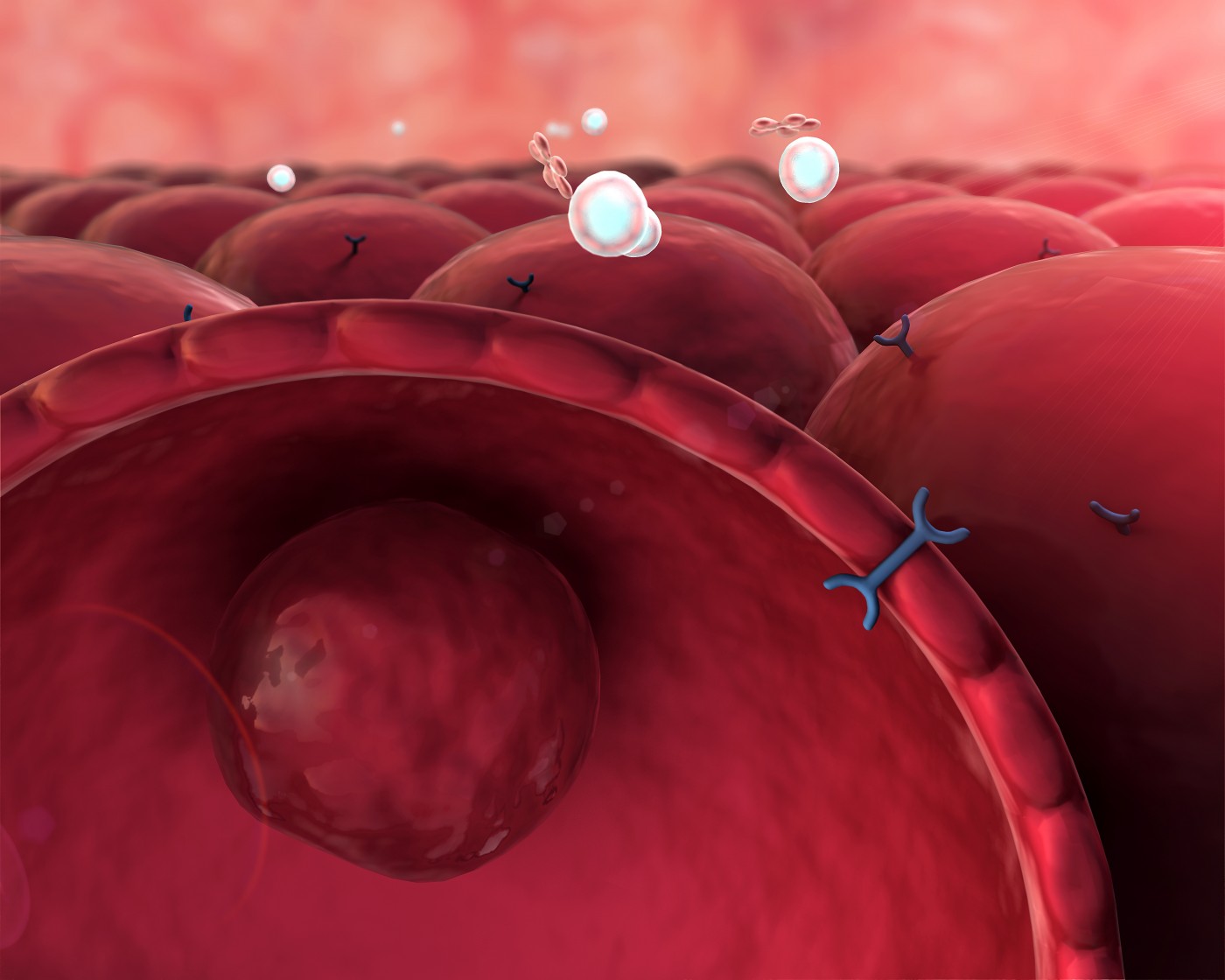 Scientists from University of North Carolina Chapel Hill and North Carolina State University reported that ‘epigenetic enzyme-targeting’ drugs can be utilized to block adaptive kinome reprogramming, which is the primary cause of kinase-signaling drug resistance in breast cancer cell lines. Specifically, resistance to a common breast cancer therapeutic, lapatinib, can be prevented by combinatorial treatment with the BET family bromodomain inhibitor, JQ1.
Scientists from University of North Carolina Chapel Hill and North Carolina State University reported that ‘epigenetic enzyme-targeting’ drugs can be utilized to block adaptive kinome reprogramming, which is the primary cause of kinase-signaling drug resistance in breast cancer cell lines. Specifically, resistance to a common breast cancer therapeutic, lapatinib, can be prevented by combinatorial treatment with the BET family bromodomain inhibitor, JQ1.
Twenty-five percent of breast cancers are driven by the overexpression of ERBB2, a receptor tyrosine kinase, and inhibition of ERBB2 has been shown to effectively treat breast cancer in a subset of patients. One such inhibitor of ERBB2 is a drug called lapatinib, which acts as an ATP competitor of ERBB2.
An unfortunate consequence of utilizing drugs such as lapatinib to target kinase signaling is the subsequent shift in dependence to alternative kinase signaling nodes, termed ‘adaptive kinome reprogramming,’ which compensates for ERBB2 inhibition and results in resistance of tumors to the drug. Furthermore, the ability of tumor cells to circumvent these drugs is not resolved by combinatorial kinase-signaling therapies, as seen with other targeted drug therapies.
Researchers hypothesized that by understanding the extent to which adaptive kinome reprogramming triggers resistance to ERBB2 inhibition, a mechanism of prevention of this adaptive response could be identified and targeted.
Using ERBB2+ cell lines and mass spectrometry, the team observed that a variety of cell signaling kinases are more highly expressed or activated after 48 hours of treatment with lapatinib, which temporally correlated with loss of growth inhibition. These data suggest that lapatinib treatment results in the activation of adaptive kinome reprogramming and this reprogramming is likely the cause of loss of inhibition, or resistance. This detailed analysis of kinome reprogramming also highlighted the significant heterogeneity of alternative kinase activation, ranging from receptor tyrosine kinases to kinases involved in cytoskeletal regulation. This variety in kinome response is likely the reason that combinatorial kinase-signaling drug therapy provides only short-lived results.
[adrotate group=”3″]
The team tested drugs that inhibit several of the kinases involved with lapatibib-induced adaptive kinome reprogramming, including IGF1R and FGFR2, and showed decreased resistance to therapy.
To improve the durability of lapatinib treatment, researchers identified a drug that could inhibit the initiation of adaptive kinome reprogramming. They focused their attention towards inhibitors of epigenetic enzymes in the hope of identifying a drug that could prevent reprogramming at the transcriptional level. JQ1, an inhibitor of BET family bromodomains, was one such drug capable of preventing lapatinib-induced adaptive kinome reprogramming at the transcriptional level.
In combination with lapatinib, JQ1 was shown to be capable of extending the growth arrest of multiple breast cancer cell lines beyond that seen in kinase inhibitor combination therapy. Furthermore, JQ1 was capable of inhibiting the epigenetic machinery required to activate lapatinib-induced kinome reprogramming, reducing the ability to alter transcription and activation of alternative kinase signaling pathways as a means to elicit resistance.
Given that BET family bromodomains are responsible for many cellular functions, researchers were surprised to find that JQ1 seemed to preferentially modulate the transcriptional regulation of lapatinib-induced kinase expression. Strikingly, JQ1 prevents BRD4 from binding the promoters of lapatinib-induced kinase genes, specifically, thereby preventing their expression. This is particularly important since it reduces the extent of off-target effects that occur as a result of using BET family bromodomain inhibitors.
To highlight the power of the combinatorial lapatinib-JQ1 therapy, researchers demonstrated that this treatment was even capable of restoring long-term sensitivity of lapatinib-resistant cell lines.
This study exemplifies a mechanism by which two drugs can act synergistically at the level of cellular signaling and epigenetic regulation to limit the growth of several breast cancer cell lines. In their study, the authors state that they ‘believe epigenetic enzyme-targeting drugs will be key to preventing resistance rooted in kinome reprogramming, this making the action of kinase inhibitors durable.’

